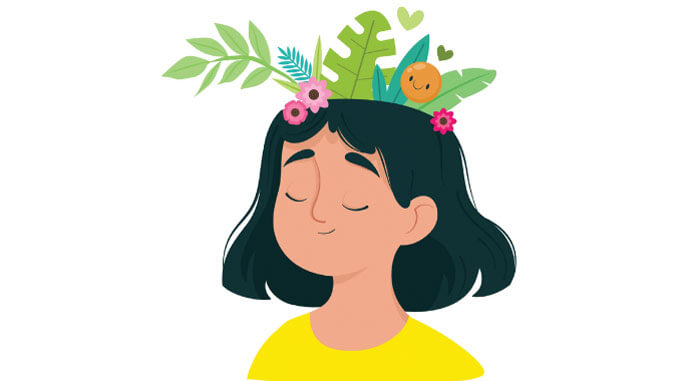
The focus on mental health has grown exponentially in recent years, especially that of students. Results from a brief survey conducted by mental health experts at the University of Hawaiʻi at Mānoa in fall 2023 boiled down the most pressing stressors impacting some Native Hawaiian and Pacific Islander-identifying haumāna (students).
Top 5 stressors
- Financial stress (73%)
- Transportation issues (37%)
- Friendship drama (35%)
- Social media stress (31%)
- Work-related stress (30%)
To help meet mental health and well-being needs of Kānaka ʻŌiwi (Native Hawaiian) and Pasifika haumāna at UH Mānoa, Ka Malu a Waʻahila was launched in 2022 to provide free individual therapy (virtual or in-person), monthly kūkākūkā (discussion) and group support sessions. The program hosts in-person sessions once a week at the UH Mānoa Counseling and Student Development Center inside the Queen Liliʻuokalani Center for Student Services.
- Related UH News story: Free mental health program for Native Hawaiian students, August 23, 2022
“Many of our students juggle multiple roles beyond that of being a student, including working, taking care of children or younger siblings or kūpuna (elders),” said Jillian Freitas, program director at Ka Malu a Waʻahila. “The pandemic also shifted the ways in which we connect and relate to one another, and many of our students have expressed challenges with friendships, and building community, even after resuming in-person activities.”
Freitas works alongside a team of licensed behavioral health clinicians who identify as Indigenous Pasifika and work to cultivate a therapeutic space for students. The program’s name, Ka Malu a Waʻahila, refers to the protection or shelter of Waʻahila, which is the mountain ridge that casts a shadow over Mānoa.
“For our Kānaka ʻŌiwi and other Indigenous students, there is an underlying presence of historical trauma from colonization that continues in various forms today, and has impacted the overall health and wellbeing of our peoples,” Freitas said. “Many of us are familiar with this trauma narrative, however, we also have a beautiful resilience narrative too.”
Deep-rooted resiliency
Freitas added that the program’s foundation and approach to integral pathways of healing stems from strength and wisdom garnered through generations of their cultural ancestors. They infuse established therapeutic methods with ʻike (knowledge) derived from Native Hawaiian legends, moʻolelo (stories) and history, and language and cultural revitalization efforts.
“We hear a lot about the importance of self-care in Western circles. But we ask our students to conceptualize what self-care looks like for them, and what it might look like from an Indigenous perspective,” said Freitas. “For us, self-care that is rooted in kaiāulu (community), rooted in kuleana (responsibility) and purpose, rooted in values, uplifts the entire lāhui (nation) and can never be selfish.”
Ka Malu a Waʻahila was developed at the request of the UH Mānoa Kūaliʻi Native Hawaiian Advisory Council and funded by the UH Mānoa Office of the Provost.

